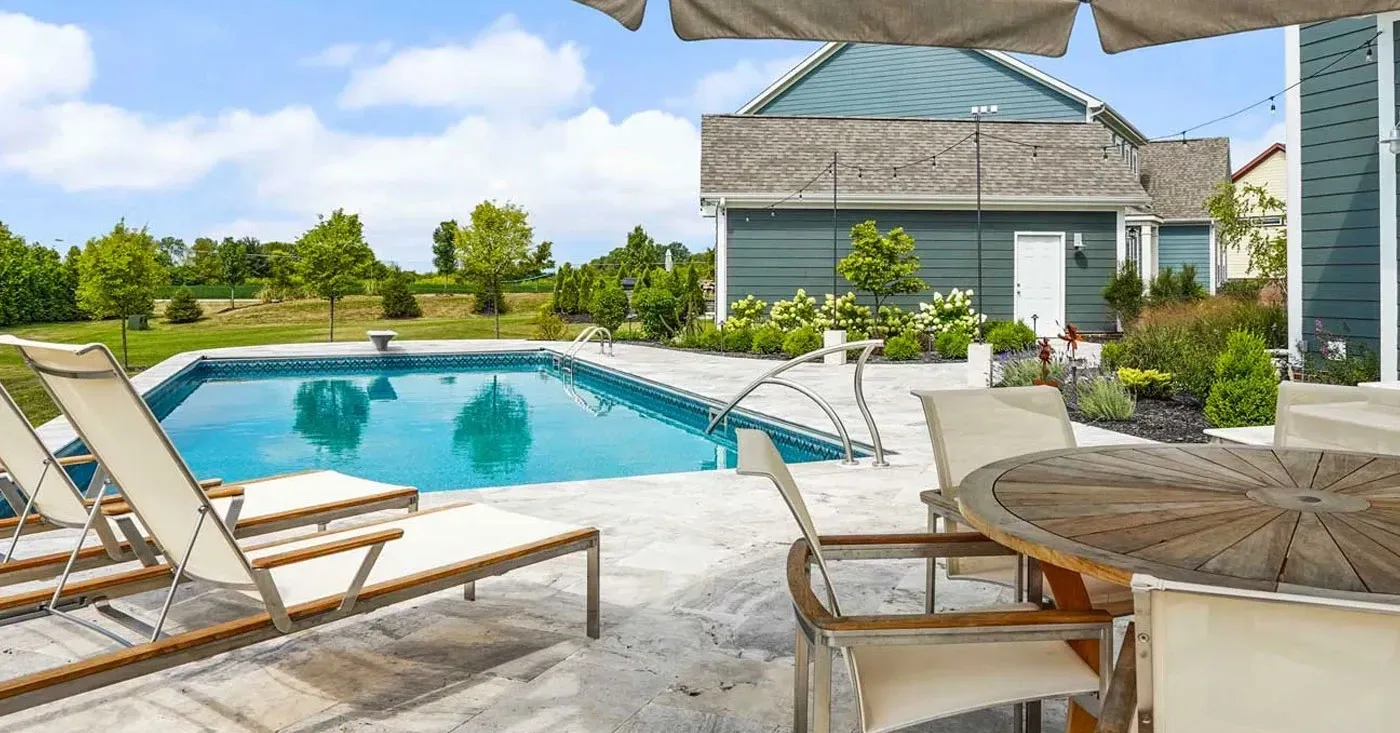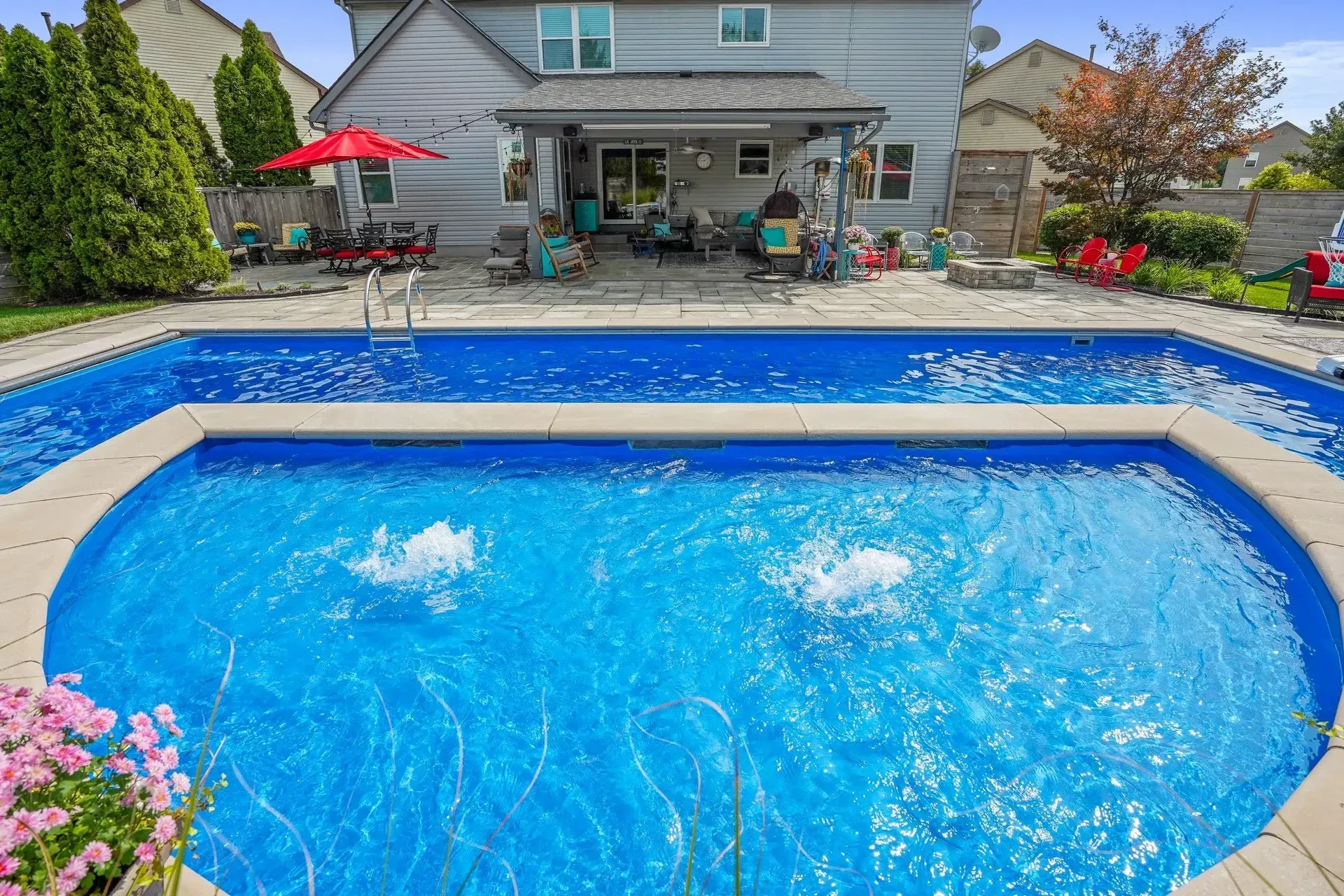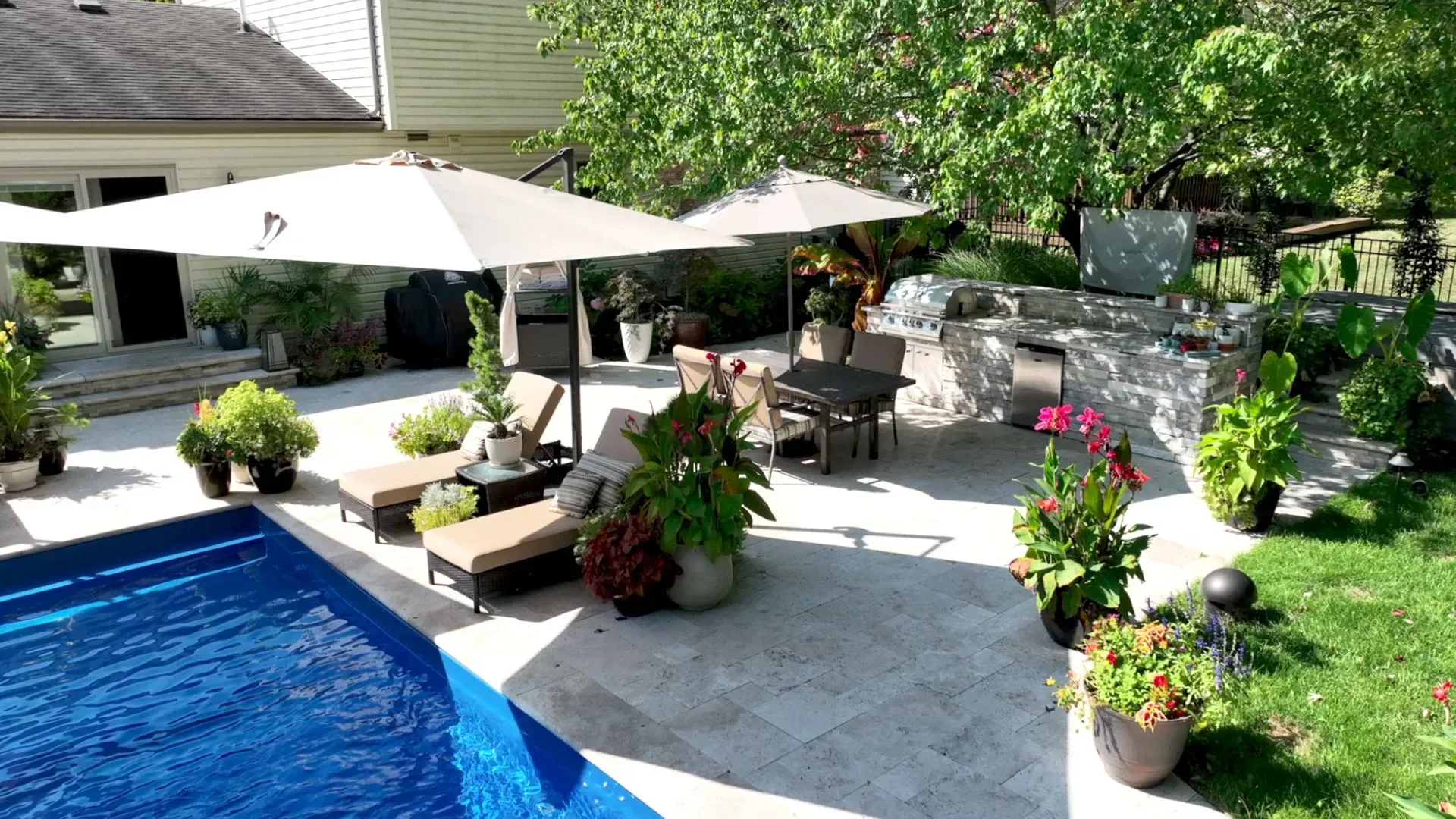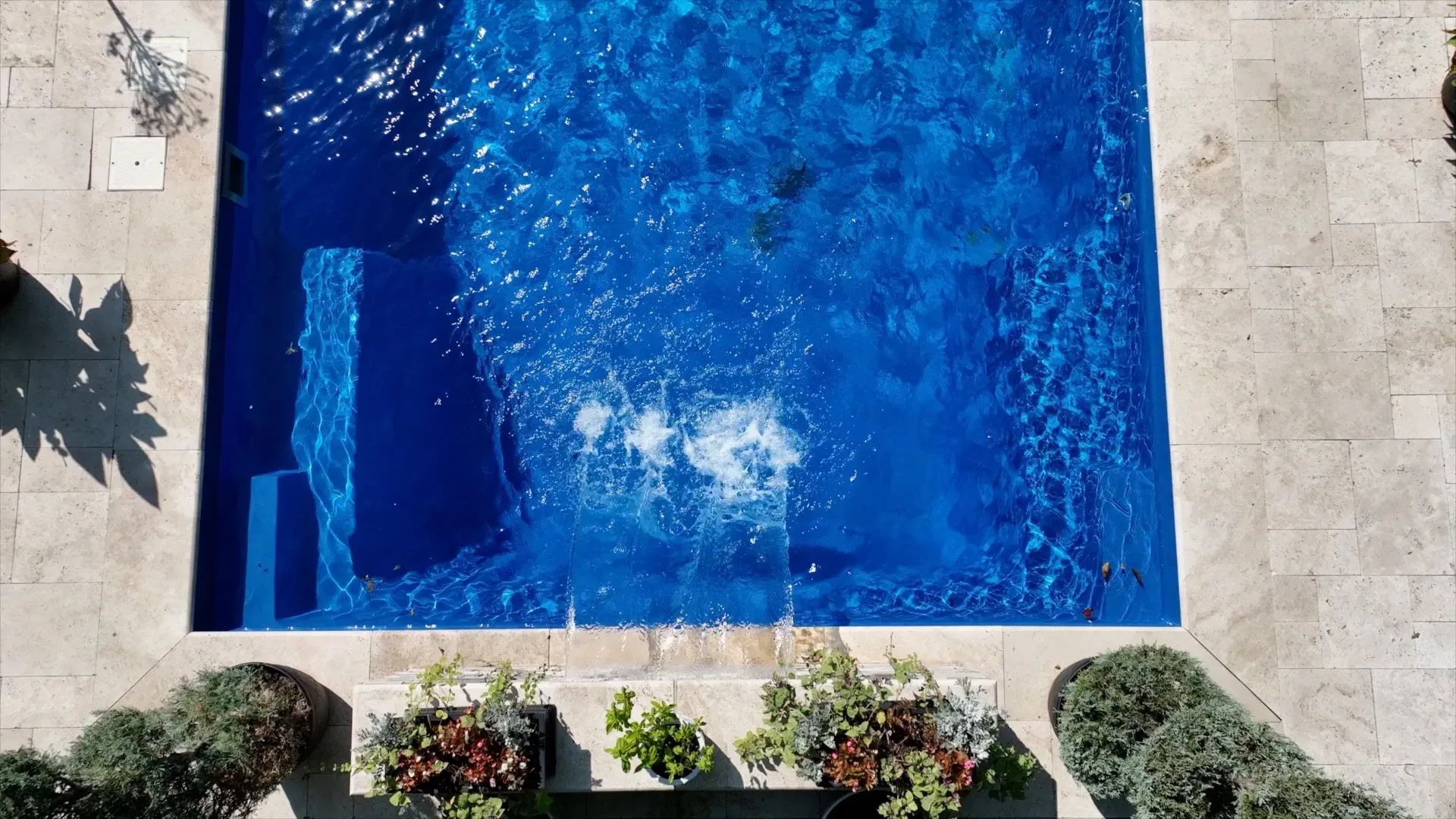Top 5 Reasons to Own a Pool

Swimming Pools – you see them in the hotels and resorts, on TV, and throughout the neighborhood. One thing that remains consistent is wherever you see them, kids are laughing, and adults are having fun.
Is it worth buying your family a pool for your backyard?
Here are five reasons that may have you take the “dive” and turn your boring backyard into a paradise steps away!
1. Family Memories
We hear parents say, “I wish our kids would hang out with us”; maybe you just need to add water! The time you can spend with your family in the backyard will be endless with an in-ground swimming pool. Add in a fire pit, hot tub, and outdoor kitchen, and you may never have to book an out-of-town vacation again. Family and friends will love the invitation to hang out at your swimming pool; whether it’s a late-night dip or a family BBQ by the pool, the memories you make will be endless.
2. Exercise
Aquatic exercise is a low-impact activity that takes the pressure off your bones, joints, and muscles. Water also offers natural resistance, which can help strengthen your muscles. Aquatic exercise has several health benefits, such as improved heart health, reduced stress, and improved muscular endurance and strength. A swimming pool in the backyard may just be what the Doctor ordered! Source: Mayo Clinic
3. Better Sleep
We all want a good night’s sleep… not only for us but our kids. Nothing wears out kids and helps them fall asleep before the movie ends – then a day in the pool! The time in the pool – even if you are “playing” and not doing laps, will help you sleep. Even with a heated pool, the cooler temperature makes your body work harder to stay warm, making it a great solution for a good night’s sleep. Want to wake up fast? Take a dip in the pool first thing in the morning. Nothing better than starting the day and ending the day in the pool.
4. A party close to home
A resort in your backyard steps away! Mix in the patio furniture with a grill, and you have an instant pool party. The teenagers will want to hang out at home, and the younger kids will think you are the life of the party. No need to pack up the suitcases and spend all that money on a trip – just walk out the backdoor to your own personal paradise.
5. Increase the perceived value of your home
Under the right circumstances, according to Houselogic, a pool could boost your home value by 7%.
Here are some of the conditions:
- You live in a higher-end neighborhood.
- The pool doesn’t take up the whole backyard
- The pool style fits with your home and is well maintained.
- You can find a buyer who wants a pool with their home.
Bottom line, if you’re thinking about adding a pool, don’t look at it as an investment in your home; instead, look at it as investing in your lifestyle!
OMNI LEARNING CENTER
RECENT POSTS




